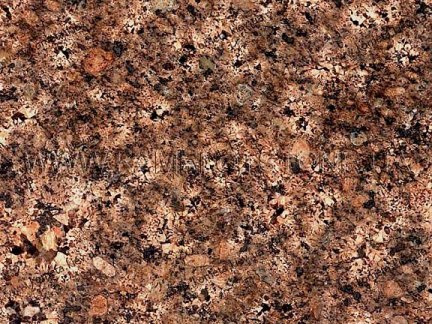Didkovichi
Stone: Granite
Colour: Brown
Country of origin: Ukraine
Class of radioactivity: 1 class
Colour: Brown
Country of origin: Ukraine
Class of radioactivity: 1 class
COST OF TILES
| Dimensions, mm | Processing | Cost, UAH/m2 |
| 20*300*600 | - | 850 |
| 20*400*800 | - | - |
| 20*600*1200 | - | - |
THE COST OF A TEARDROP
| Dimensions, mm | Processing | Cost, UAH/m2 |
| 20*300*600 | - | - |
| 20*400*800 | - | - |
| 20*600*1200 | - | - |
Description
Granite (because of it. Granit or Fr. Granit from Italian. Granito - "granular") is a igneous plutonic rock of acidic composition of a normal range of alkalinity from the granite family. It consists of quartz, plagioclase, potassium feldspar and mica - vitreum and / or muscovite. Granites are very widespread in the continental crust. Density of granite - 2700 kg / m³, compressive strength up to 300 MPa. Melting point - 1215-1260 ° C; in the presence of water and pressure, the melting point is significantly reduced - to 650 ° C. Granites are the most important rocks of the earth's crust. They are widespread, form the basis of most of all continents and can be formed in different ways.Granite is one of the most dense, hard and durable rocks. It is used in construction as a facing material. In addition, granite has low water absorption and high resistance to frost and pollution. That is why it is optimal for paving both indoors and outdoors. In the interior, granite is also used for decorating walls, stairs, creating tabletops and columns, decorating stairwells with granite balusters, creating vases, facing fireplaces and fountains. In the exterior, granite is often used as a facing, construction (building stone for foundations, fences and retaining walls) or solution material (paving stone, breccia). Granite is also used for the manufacture of monuments and for granite rubble. The first is mined in block quarries, the second - in crushed stone quarries. Check plates up to accuracy class 000 are made from granite.
PHYSICAL AND CHEMICAL PROPERTIES
| Bulk weight: | 2700 kg/m3 |
| Compressive strength: | до 300 MPa |
| Bending strength: | - MPa |
| Moisture absorption: | -% |
| Frost resistance: | 50 MPa |
